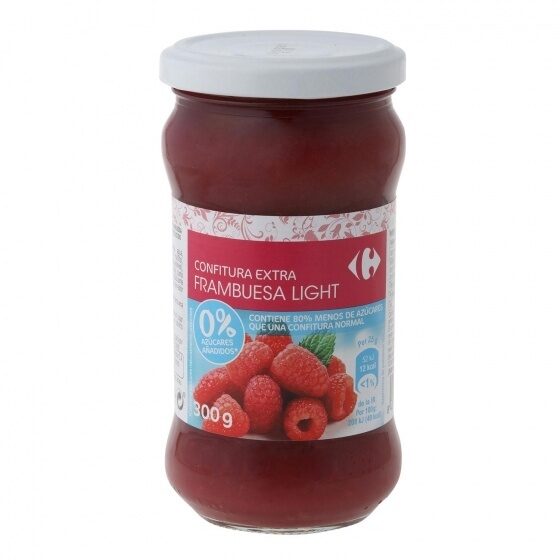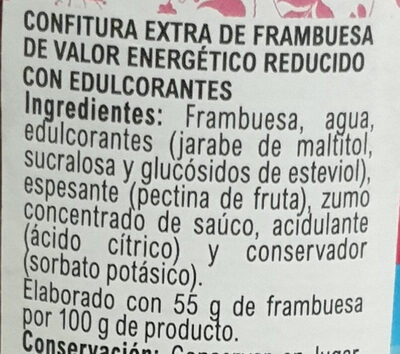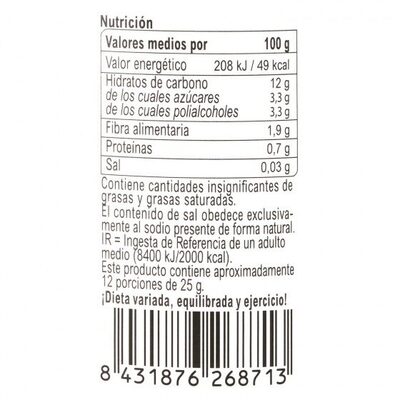Confitura light frambuesa - Carrefour
Aquesta pàgina del producte no està completa. Podeu ajudar a completar-la editant-la i afegint-hi més dades a partir de les fotos ja disponibles, o fent-ne més amb l'aplicació de androide o iPhone / iPad. Gràcies!
×
Algunes de les dades d’aquest producte les ha proporcionat directament el fabricant Carrefour España.
Codi de barres: 8431876268713 (EAN / EAN-13)
Marques: Carrefour
Categories: Aliments i begudes amb base vegetal, Aliments amb base vegetal, Aliments amb base de fruites i verdures, Esmorzars, Productes per untar, Aliments amb base de fruites, Productes amb base vegetal per untar, Productes dolços per untar, Conserves de fruita, Melmelades, Melmelada de baies, en:Raspberry jams
Etiquetes, certificacions, premis: Amb edulcorants
Botigues: Carrefour
Països on es va vendre: Espanya
Matching with your preferences
Entorn
Petjada de carboni
Empaquetament
Transport
Report a problem
Fonts de dades
Producte afegit per elcoco
Última modificació de la pàgina del producte per thaialagata.
La pàgina del producte, també editada per elcoco.c99a87e32e1ad593f0a7539424aeb720, franrt, kiliweb, moon-rabbit, openfoodfacts-contributors, org-carrefour-espana, roboto-app, scanbot, tacite-mass-editor, teolemon, yuka.RnE4ZUVhYzhpdndwa3RzOCtDbnc4YzVUd1lMMlFYdVFLTkFzSVE9PQ, yuka.UjZCYlRLRUtyNkV5c1BjZjN3SFA2KzE2NWJheVZ6aWNLc0VKSWc9PQ, yuka.WTRzTU41dGYvL3BWaGN4ai96T0V5dkpZM3NDTkEzam5FTlUrSVE9PQ, yuka.ZktwZENaZ0NoZndRaWZNYzgwL094WTFTNnJTMmNFbVRLT3NKSWc9PQ.









